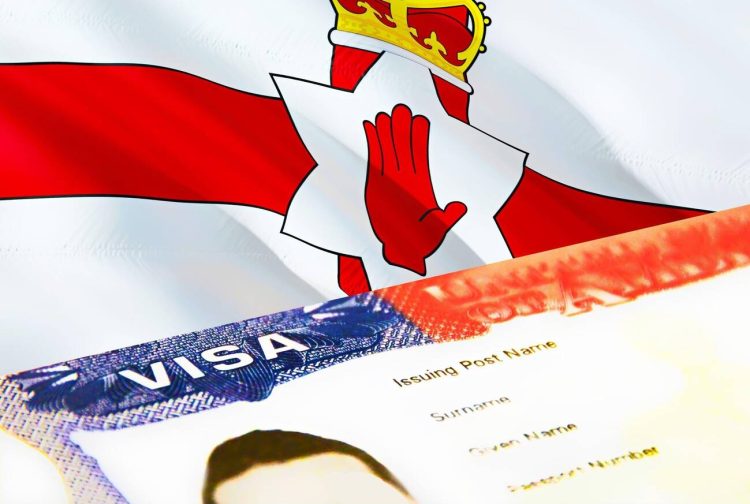Northern Ireland blocks UK immigration law, highlighting significant challenges to the British government’s controversial Illegal Migration Act. This law aims to prevent asylum claims by those arriving in the UK illegally, mandating their deportation to “safe” third countries like Rwanda. However, Belfast’s High Court has ruled that parts of this policy violate human rights protections inherent in post-Brexit agreements, rendering it inapplicable in Northern Ireland. Although, ex Prime Minister Rishi Sunak remained committed to the deportation scheme, insisting that Northern Ireland’s legal stance will not alter government plans. Sir Keir Starmer new Prime Minister has confirmed the Rwanda deportation scheme is “dead and buried”, on his first full day as prime minister.
What is the immigration law?
The Illegal Migration Act, passed last year, means those arriving in the UK illegally are prevented from claiming asylum. Instead, they face removal either to their home country or a so-called safe third country like Rwanda.
According to the AP News, the law aims to deter migrants crossing the English Channel to claim asylum in Britain. It allows those who have arrived illegally to be deported to a “safe” third country where their claims are processed.
Legal challenges to the law
According to Channel News Asia, several legal cases have challenged the UK government’s efforts to curb irregular migration. The focus has been mainly on migrations from “small boats” crossing the Channel from northern France.
In November last year, the UK Supreme Court ruled that the deportation plan was illegal under international law. However, Sunak recently passed legislation in parliament that deems Rwanda safe. The legislation allows flights to go ahead and decision-makers to ignore aspects of human rights law.
As the AP reports, the UK Supreme Court said Rwanda was unsafe, so it struck down flights to the country. However, a subsequent bill pronounced the country safe, making it more difficult for migrants to challenge deportation. It also allows the UK government to disregard injunctions from the European Court of Human Rights that aim to block removals.
Why Northern Ireland blocks UK immigration law
An important question is why Northern Ireland blocks UK immigration law. According to Reuters, Belfast’s High Court has ruled that parts of the UK’s flagship immigration policy undermine human rights protections guaranteed in post-Brexit arrangements. Therefore, they should not apply in Northern Ireland.
Judge Michael Humphreys found various aspects of the law were unlawful in Northern Ireland. The factors include the removal of asylum seekers, children, and victims of human trafficking without carrying out any assessment. Lawyer Sinead Marmion says the ruling would prevent the government from removing such people from Northern Ireland.
According to Channel News Asia, political parties in the British-run province say the judgment makes the Rwanda scheme unworkable. The British-run province, like Scotland, has a separate legal system from England and Wales.
UK immigration law against human rights
The largest pro-Irish unity party, Sinn Fein, supports Belfast’s High Court’s judgment. The judgement “proves that the British Government’s Illegal Migration Act is unworkable and not compliant with human rights”.
London must “ensure there is no diminution of rights as promised in previous agreements,” it adds. However, Sunak says the Belfast/Good Friday Agreement should not be “expanded to cover issues like illegal migration.”
UK immigration law leads to the destruction of international image
The fact that Northern Ireland blocks UK immigration law shows the negative opinion of the Supreme Court of Northern Ireland to the anti-immigration law of the British government. The Court has announced that it will not enforce this law and will not deport immigrants. The court reasons that the UK immigration law violates the rights of asylum seekers.
Northern Ireland has an independent judicial system. With the non-implementation of the new asylum law approved by the British government, at least one of the four regions of England has declared its non-compliance with it. There are many human rights obstacles in the implementation of the law. Therefore, many countries have not welcomed the law due to the destruction of their international image.
Plan of the New British government
Labour ran their campaign on a platform of eliminating the £310 million-plus programme and replacing it with a more efficient way of combating illegal immigration.
Upon taking office, Sir Keir gave reporters his first press conference and declared, “The Rwanda scheme was dead and buried before it started.”
Given that it would deport “less than1%” of small boat arrivals, he said the plan has “never been a deterrent”.
The whole cost to the public and the financial effects of ending the programme are yet unknown. The status of the 52,000 migrants who were targeted for deportation is likewise uncertain in light of the scheme’s termination.





























